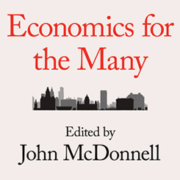![]() This work is licensed under a Creative Commons Attribution-NoDerivs 3.0 Unported License.
This work is licensed under a Creative Commons Attribution-NoDerivs 3.0 Unported License.
The Human Action Podcast: The Coming Financial Repression
/in Articles /by toby2021UK entrepreneur and founder of the Cobden Centre Toby Baxendale joins Bob to discuss meeting Hayek, the history of economists supporting 100% reserve banking, and the tools central banks and governments will use to enact “financial repression.
Click below to listen to the podcast:
https://mises.org/library/toby-baxendale-coming-financial-repression
Japan, an Opportunity Awaits Us
/in Articles /by toby2021I have been in the fish business for just over 30 years. There is no place more idolised as the centre of the world for those of us in fish, than the Tsukiji Fish Market. It is reputed to be the largest in the world. 700,000 tons of fish pass though there each year. 500 odd species totalling about $5bn dollars in value. A Bluefin Tuna sold there at the new site, in 2019 for a staggering $3.1m. There is no doubt that the Japanese love their fish. In fact, in Japan they consume 48.6 kg of seafood per capita per year. This is over double our 20 odd kg’s per year in the UK. In Japan, certain fish mongers have the same status as a sommelier does for wine. This is unique to Japan. I trade with the only one, resident outside of Japan, Nick Sakagami, Osakana Meister number 109. With Tuna, his palate is so sensitive, he can, by the smell & taste, tell you what ocean it is from & how it has been treated since its capture. These are unique skills, skills only found in Japan as far as I am aware. The UK is a fishing nation. In 2019, UK exports of fish and shellfish to Japan totalled a miniscule £17.6 million, making up 0.2% of all UK goods exports to Japan. In 2019, Japan was the 14th largest destination for all UK fish and shellfish exports and the 5th largest non-EU destination. UK fish and shellfish exports to Japan made up 0.9% of all global UK fish and shellfish exports to the world in 2019. We can do better as a nation than that! Mackerel is the 5th most popular fish in Japan and salmon, the most popular. The UK has a world class fishery in the former and a world class aquaculture industry in the latter. Cod is also popular. So why has trade not been more lucrative? Well, there are tariffs between the UK and Japan. Tariffs protect the local producers at the expense of their consumers and generally make food more expensive. We still come under the EU trading bloc, whose governance we are under, until the end of the year. Once these barriers are removed, we will be able to trade more. Although Atlantic Salmon is now free, Cod still remains at 9.1% and Mackerel at 9.4%. There will be opportunities with other species as well. We export £1.3 bn of fish annually, nearly two thirds to Europe. The EU fleet catches nearly as much in UK territorial waters as the UK fleet does in its own waters, some 700,000 tons, the weight of all the fish sold in the top Japanese market I mentioned at the start of this article. With this injustice being corrected when we leave the final clutches of the EU at the end of the year, we will have a tremendous opportunity to a) catch more and b) sell more and c) more of that catch to new, or underserved markets. With a UK/Japan Free Trade Agreement shortly to be in place, with the prospect of zero tariffs into the largest fish consumers in the world, our industry may well start to see some of that prosperity denied to us since our incorporation into the EU and the surrender of our sovereign waters to a foreign power, come back to us. Toby Baxendale is an entrepreneur & investor see www.tobybaxendale.com
Austrian Economics Podcast
/in Articles /by toby2021Toby Baxendale – An Entrepreneur’s view of Austrian Economics Click here to read more
Economics for the Many
/in Articles /by toby2021Economics for the Many by Ed John McDonnell, Verso Books 2018 Democratising Economics in a Post Truth World By Antonia Jennings She argues that economics as we know it is for the self-serving elite. All policies emanating out of economics self-reinforce that elite. The recommendations are:
- Create an army of “citizen economists.” They would hold institutions to account. Raising questions challenging bodies, challenging assumptions and so on and so forth to benefit working people.
- Make PSHE (personal, social, health and economic) statutory, so the level of economic literacy is raised.
- At university level, make the teaching more relevant and accessible to all if indeed it is about the real world.
- The underlying values and assumptions of papers and policy recommendations need to be exposed, it’s a social science after all.
- Needs to be more diverse i.e. more non-white males.
- The Left need to create a compelling narrative around their economics.
TB’s Comments Point 5 is clearly racist and very offensive and should be avoided like the plague. There is nothing stopping “citizen economists” doing what she wants in point 1. Point 2 can only be a helpful development. Point 3 for sure, maybe research grants should specifically stress one of the outputs of any research needs to be able to show and communicate in practical layman terms, what the research discovers. Point 6: Creating a left-wing narrative is something for the Left and can’t be a matter of public policy. Labour’s Fiscal Credibility Rule in Context By Simon Wren Lewis This is known as the FCR. The FCR is based on a target for the deficit. It does not say what this target is, but I assume it is not to have one in the positive stage of any macro cycle. At zero interest rates, where nothing can stimulate investment, it moves to allowing fiscal stimulation. This is referred to as the “knock out.” It does not matter how high the debt goes as the Govt can (issue it) buy it i.e. like QE. It also does not matter how high the deficit goes in this knockout period.
- Non-investment spending is to always be matched by tax rises.
- Investment spending is not part of the FCR so being Keynesian, the suggestion is spend, spend and spend. It can only be good! They don’t need to be matched by tax increases as they will self fund. Brilliant!
- Commenting on the Labour 2017 Manifesto and noting that if anyone said it “did not add up,” this, according to the author, is a good thing. Why? Because they should go on the front foot and say the FCR allows them precisely, at this very vulnerable moment, for the economy to let rip, with all this self-funding public spending. This should be a “welcome feature” of any manifesto.
TB’s Comments This re-hash of Keynesian economics of fiscal stimulation is astonishing in the 21st Century. Like a Zombie coming back from the dead, for all the reasons why Keynesian economics was discredited, this will have to be again. So, prepare to dust off your notes and old text books! What is most bizarre about this is that the Left (& Libertarian Right) quite rightly are up in arms about the unfairness of QE as it creates asset bubbles that transfer real wealth via Cantillon effects, from the poorest to the richest, and prop up the whole welfare state of credit we have in the banking system. Now, those bankers, on the welfare state of credit are not paid Universal Credit rates of benefit, but (by) via 6 and 7 figure salaries! As with most Left-Wing policies, for sure, this will do the exact opposite of what the intention of the author has in mind. Of all the chapters, this one is probably the most mad and dangerous and could lead to a Venezuela type economy, very quickly. The classic errors of all Keynesians can be summarised as follows;
- Govt spending to boost aggregate demand can only take place out of taxes and the new issue of money and or borrowing. a. If out of taxes, the Govt takes money from a group of people/entities, who would have spent it and gives it to a group of people/entities who can spend it. This assumes that the latter group, having a marginal propensity to consume that is more intense, will spend more, kicking off a recovery. What this ignores is that unless your money is horded under a mattress, by the very nature of the banking system, it is saved and then simultaneously invested. So, this extraction from one group of people/entities is at best a zero-sum game. At worst, the money is transferred from where it is being productive, to where it is just consumed. b. If out of minting new purchasing power, be it via the very fashionable QE, or via the more traditional Open Market Purchase, or by plain old-fashioned printing of new notes and or coins, then the only effects will be a wealth transfer from the poorest to the richest. This is always the case as money enters the system via the banking sector. This sector gets the benefit of new purchasing power. They spend their new purchasing power, as we have seen, in certain asset classes, notably housing. And: lo and behold! these prices skyrocket out of the reach of the common person and so on and so forth. c. If out of borrowing in the conventional sense where a Govt issues a bond that is subscribed to by people/entities, out of their savings (which of course are currently being invested) then the same effects of a) are realised. If borrowing is financed by the issue of new bonds, as suggested by McDonnell, and funded by the Govt issuing new reserves to create new money, then the same effects as seen in b) occur. With no understanding of the above, all of John McDonnell’s Marco plans for the economy are doomed to failure.
- Keynes never discusses how wealth is created, so I guess it is hard to expect his followers to know how wealth is created. But, in summary, for wealth to be created, entrepreneurs and business people need to project forward into the current needs of people and into their future needs with a mind to working out solutions to provide for those needs in a better, cheaper, faster, more convenient, more abundant way. Practically, this is done by refraining from consumption i.e. to generate savings, for example, or by using the savings of others to make or provide these better solutions, using the land, labour and capital, over time. There is no other way known to genuinely wealth create. McDonnell’s plans, in the absence of this understanding, are doomed to failure.
- In this book, you will see constant reference to the Multiplier. When Govt expenditure is done, it is assumed, that is say a train station is built, the builders who are now employed will go and spend money. So will suppliers, where they would not have before, and so on and so forth. Pause for a minute and think. If it was that easy, Govt should spend and spend and poverty would be eliminated overnight. Indeed, do this globally and, hey presto! Like magic, we have eradicated world poverty! Yipeee! (So,) But what is not being taken into consideration in this example is that this money was being spent somewhere before it was extracted to spend on building the train station, so at best it is zero sum, and at worst it will be destructive of wealth, if what is being spent on is less productive that what is being created.
- To the Keynesian, the circular flow of income is held as canonical. It’s a truism that says that all income is in fact derived from all of the expenditures in the economy. If, say, the Govt lowers and restricts, its expenditure, then it follows that the income of the economy will drop. Nice mathematical relations can be shown to demonstrate this. However, what is not taken into account is the quality of those expenditures and incomes. Especially under the Keynesian system, nothing concerning the profitability of these expenditures are taken into account. In the circular flow of income, a £1bn rev company is great supporting spending of £1bn PA, but what if it is loss making? When it runs out of cash, its ability to sustain itself and all the attendant jobs and supply lines ends. If it makes 1% net profit and a £0.5bn PA company makes 10% net profits, then the lower revenue company will be more effective at sustaining jobs and supply lines. So, it’s crucially the quality of that income that matters. Being smaller and more profitable may well sustain much more. The same is the case for the expenditure some of the economic actors. This is lost on Keynesians.
If anything, a Labour Party serious in its wish to address some of society’s needs should be focused on savings and the need to encourage them with strong support to entrepreneurs, so that investment can accelerate and compound over time, generating more jobs and prosperity. This takes time and no politician seems to have time to nurture wealth creation. Rising to the Challenge of Tax Avoidance By Prem Sikka To attack tax avoidance/evasion
- Common Consolidated Corporate Tax Base (CCCTB) a. This moves to tax based on where it is earned and not where the corporation is based. b. No matter how many entities the corporation has, it will only be viewed as one, to avoid the shifting and then evaporating of liabilities. c. In viewing some of the truly global concerns the group consolidated profits would be the key measure of tax, then this would be proportioned down to each nation based on number of employees, assets and sales activity.
- Tackle the UK tax avoidance industry. a. Make a complete ban on audit firms offering non-audit i.e. avoidance advise to clients. b. Large fines for both corporates and officers in the companies recommending these schemes. c. Barring the above from office and from being a corporation. d. Public fining of HNW & UHNW’s accounts. e. Public filing of large corporations tax returns.
- Abolish tax relief on Interest payments
- Introduce a Withholding Tax
- Investigate Tax Reliefs
TB’s Comments The CCCTB for sure seems to be a very good way forward. Concerning both 2 a & b, the separation of audit from other advice, this may well be a good avenue to pursue, but a more effective way might be to make them fiduciaries. They of course were always historically, fiduciaries. This meant they were fully open ended, not protected by a Limited Partnership or a company of Limited Liability, and therefore liable, for any bad advice they may give, on loss on any scheme they recommend. This would open them to being personally sued by the Revenue and clients, should schemes go wrong and or be declared illegal. I think concerning point c, if either an event in a or b happens, their professional services should just bar them, plainly and simply, from practise. It would be worth looking to see what teeth these professional service private regulators have before any specific legislation is done. Concerning d, this is obviously highly discriminatory and should be avoided. Like Switzerland, if we wanted to go down this route, it might be sensible to do this for everybody in a non-discriminatory way. This will also display, for all to see, those who pay no, or little tax, including benefit scroungers. I agree that abolishing tax relief on interest will be a good thing and encourage, for sure, a better balance between equity and debt for corporate finance. This will generally have a smoothing effect on booms and busts i.e. taking off the extremities of a boom and bust cycle, but not killing the cycle itself! A Withholding Tax at the basic rate for any foreign person/entity is very welcome, provided we can be sure there is a double tax treaty with the other jurisdiction, so tax can’t be double payed. If there are not suitable double taxation treatise, doing this on its own could seriously discourage investment in UK PLC. Clearing up the generous tax reliefs and making them a) simpler and b) measured by their effectiveness at rewarding the behaviour they are encouraged to do, would seem very sensible. Click below for the complete review: [prettyfilelist type=”pdf” ids=”912″ hidesort=”true” thispostonly=”true”]
What is Right Wing?
/in Articles /by toby2021Last month on ConservativeHome, Tim Montgomerie asked “What is Right-wing?”. In this article I seek to answer the question, using small “c” and little “l” to denote the conservative and liberal systems of political-thought and Capital “C” and “L” for the respective political parties of those names. Click HERE to read the full article
The Protectionist Zombie Is Back
/in Articles /by toby2021Every generation or so, like a zombie, the case against free trade rises from the grave. It’s doing so now. The jungle drums of protectionism are beating in America and Britain just as it prepares to escape the yoke of the EU. With my garlic, sharpened stake and the use of reason, I will now do my bit to stab this zombie in the heart and be done with it… until the next time. Individually, instinctively, we are all free traders. That may come as a surprise to some, but when a doctor chooses to employ a skilled receptionist – despite the fact that the doctor can answer the phones, file case notes, write referrals and set up hospital appointments, more accurately and faster than the receptionist – the surgery can be more productive, as the doctor can see more patients. In economic terms, the doctor has an absolute advantage over the skills of the receptionist. If our doctor used this absolute advantage, he or she would be faced with doing all the clerical tasks and neglecting medical duties. This would lower the productivity and effectiveness of the surgery. Contrast this with playing to the doctor’s comparative advantage: the doctor focuses on skills that the receptionist does not have, to advance the interests of as many patients she can. If we turn to the receptionist, this is of course a joyous outcome, as he or she does not have to compete with the better-educated doctor for work, only with people of similar talent. Free trade will always mean that the poorest members of society and the least skilled have a valid role that plays to their own comparative advantages. Human co-operation on this level is so obvious that it should not need any advocacy at all. On a countrywide level, you can replace “doctor” and “receptionist” with whatever combination of the same industries you want, but it will never pay for one nation to follow a policy of competing to its absolute advantage. It will always pay for that country’s industries to concentrate on growing its trade in areas where it has superiority. The doctor and the receptionist are not rivals in the economy, but co-operating individuals whose specialisation in their joint endeavours is to everyone’s advantage. The industries of nations are likewise not rivals, but gigantic webs of peaceful, competitive and extended human co-operation across the face of the earth. The more co-operation, the deeper the benefits. This is the natural outcome of the human condition. Faced with not living in a heaven of unlimited goods and services, we can only seek co-operation if we want to benefit from the maximum output of goods and services for all. The human condition is not about the survival of the fittest or the selfish gene: we are destined to work together. Protectionist bodies, such as the European Single Market, whilst seemingly great for all those who trade within its boundaries, actually diminish the pool of talent with which its participants can co-operate. By erecting tariffs, you exclude those who are now made less competitive by the tariff, and therefore displace any advantage the Single Market participants would have gained by playing to their comparative advantages. This increases the costs of the Single Market participants and discriminates against those against whom the tariffs are set. The people in the protectionist zone sacrifice, at the margin, their prosperity. Everyone loses. Even the participants in the protected zone, who think their local pig industry is saved, pay more for the commensurate goods and services. For the richest, this will make a smaller impact than on the poorest. Protectionism always hits the poor the hardest. The 19th-century entrepreneur and Liberal parliamentarian Richard Cobden knew this so well. With a small group of fellow entrepreneur manufacturers, he took on the might of the aristocracy, who had succeeded in establishing tariffs to protect their agricultural estates from cheap imports. Cobden made the case for abolishing the Corn Laws (the catch-all term for protective food tariffs) in favour of unilateral free trade. One of his finest orations was delivered in the House of Commons on March 13, 1845, and described by his biographer John Morley as probably the most powerful speech he ever made: Men on the Tory benches whispered to one another, “Peel [the Prime Minister of the day] must answer this”. But Peel crushed in his hand the notes he had made and remarked, “Those may answer him who can”. The establishment of universal free trade in the mid-nineteenth century created the greatest period of growth in our nation’s history. I truly hope that our political masters will not listen to the vested interest groups and will be brave enough to establish unilateral free trade now as Britain leaves the protectionist EU.
Brexit Podcast
/in Articles /by toby2021Toby Baxendale on how free trade will thrive post Brexit Click here to read more
Liberty Me
/in Articles /by toby2021Jeffery Tucker is a man of great many talents, energy and vision . He has set up an on line pro liberty loving community http://www.indiegogo.com/projects/liberty-me—2 this will be one for all of us free market for peace and anti excessive state people to get involved with. [youtube height=”HEIGHT” width=”WIDTH”]http://www.youtube.com/watch?v=n0lBr3Na4mI[/youtube]
You can find out more about Jeff via his Twitter feed. https://twitter.com/jeffreyatucker Also, here is a clip taken from his Wiki page. “Jeffrey Albert Tucker is the executive editor of Laissez Faire Books.[1] Tucker is also a Distinguished Fellow of the Foundation for Economic Education,[2] an adjunct scholar with theMackinac Center for Public Policy[3] and an Acton University faculty member.[4] He is past editorial vice president of the Ludwig von Mises Institute and past editor for the institute’s website, Mises.org. Tucker compiled an annotated bibliography of the works of Henry Hazlitt, entitled Henry Hazlitt: Giant For Liberty, which is now in print. AFoundation for Economic Education review described the book, which “includes citations of a novel, works on literary criticism, treatises on economics and moral philosophy, several edited volumes, some 16 other books and many chapters in books, plus articles, commentaries, and reviews,” as “an apt eulogy of Henry Hazlitt.”[6] As a writer, Tucker has contributed scholarly efforts and humorous essays to LewRockwell.com, the Ludwig von Mises Institute, and elsewhere. Examples of the latter essays include his defense of morning drinking,[7] his advice on “How to Dress Like a Man”,[8] his attack on shaving cream,[9] and his admiration for the speedy-service haircut.[10] He is a critic[11] of the Grameen Bank which, along with its founder Muhammad Yunus, was awarded the Nobel Peace Prize in 2006.[12] Tucker was editor of Mises.org from 1997 until late 2011 when he was hired by Addison Wiggin as executive editor of Laissez Faire Books.[1]“
My Time for Speakers for Schools
/in Articles /by toby2021I thoroughly endorse this initiative and have been proud to contribute.
This is how it first came about.
In 2010 I was interviewed for a BBC programme about the financial crisis by Robert Peston. By a strange quirk of fate, I realised that in my restaurant supply days I had served his sister, the likeable and very talented chef Juliet Peston, who was the force behind an even more famous chef – Alistair Little.
Robert and I got chatting, and to cut a long story short, it became apparent to me, when my two eldest children went to secondary school, that the state school system was woefully under-resourced in comparison with the fee paying sector, which attracts the best speakers for its students: people from all walks of life, who are able to inspire, help to mentor and give guidance on the basis of their successful experience.
I had in the back of my mind that Robert Peston had set something up to try to address this imbalance. He essentially said to me: get involved with my charity ‘Speakers for Schools’
As a result, the following week I had the great pleasure to tell my story to the Business Course students of Barnet and Southgate College . We covered my journey of entrepreneurship and explored some of its key attributes, eg: who is suited to being an entrepreneur? What role does the entrepreneur play in society? I talked about some of my failures – things for them to avoid – and much more.
The whole experience I felt was very worthwhile and I would urge anyone whose professional experience might spur on the lives of young people to give your time, no matter how you are pressed for time. If you can change one life for the better, then it’s worth it.










